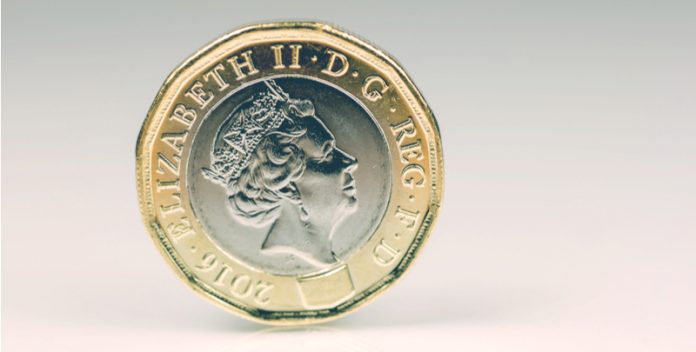The pound started the week in the red against the euro in a fairly turbulent session on Monday. The release of mixed eurozone data outshone disappointing UK economic statistics. By the end of the session the pound had lost 0.1% versus the euro and was trading at €1.1385, as it continued to struggle to cross the €1.14 level.
| What do these figures mean? |
|---|
|
When measuring the value of a pair of currencies, one set equals 1 unit and the other shows the current equivalent. As the market moves, the amount will vary from minute to minute. For example, it could be written: 1 GBP = 1.13990 EUR Here, £1 is equivalent to approximately €1.14. This specifically measures the pound’s worth against the euro. If the euro amount increases in this pairing, it’s positive for the pound. Or, if you were looking at it the other way around: 1 EUR = 0.87271 GBP In this example, €1 is equivalent to approximately £0.87. This measures the euro’s worth versus the British pound. If the sterling number gets larger, it’s good news for the euro. |
Weaker than expected UK manufacturing data set the pound off on the wrong foot at the start of the week. Data showed that manufacturing activity in the UK grew much slower than analysts were forecasting in June, which caused the pound to weaken. After the uncertainty caused by the general election analysts had forecast a slight drop in confidence in June, but a drop to a three-month low was not expected. As manufacturing is a dominant contributor to the UK economy any slowdown is likely to be poorly received by investors, sending sterling lower.
| Why does strong economic data boost a country’s currency? |
|---|
| Solid economic indicators point to a strong economy. Strong economies have strong currencies because institutions look to invest in countries where growth prospects are high. These institutions require local currency to invest in the country, thus increasing demand and pushing up the money’s worth. So, when a country or region has good economic news, the value of the currency tends to rise. |
Today sees the release of the construction PMI, which is expected to show a softening in growth in June. A weaker demand for house purchasing in general is expected to weigh on construction activity and confidence. Construction is not necessarily a large contributor to the UK economy, but combined with the manufacturing PMI they’re considered precursors to the more influential service sector PMI, the dominant sector in the UK economy. The service sector PMI is to be released on Wednesday, and disappointment here has the potential to move the pound significantly.
Eurozone unemployment remains at 8 year low
Mixed data in the eurozone meant that the demand for the euro fluctuated throughout the previous session. Stronger than expected manufacturing data boosted the euro, but was followed by weaker than expected unemployment data.
Unemployment in the eurozone remained at 9.3% instead of edging lower to 9.2%, disappointing the market. Investors were hoping for a lower unemployment rate because the closer a region is to full employment the more inflationary pressures pick up.
| How does strong jobs data boost the currency? |
|---|
| It works like this, when there is low unemployment and high job creation, the demand for workers increases. As demand for workers goes up, wages for those workers also go up. Which means the workers are now taking home more money to spend on cars, houses or in the shops. As a result, demand for goods and services also increase, pushing the prices of the good and services higher. That’s also known as inflation. When inflation moves higher, central banks are more likely to raise interest rates, which then pushes the worth of the currency higher. |
Today is a relatively quiet day for economic data in the eurozone with just wholesale inflation as measured by the producer price index. This data measures the change in the price of goods bought and sold by manufacturers. Should wholesale inflation look to be growing faster than analysts expect, then the hope of monetary policy tightening by the European Central Bank could help boost the euro.
|
This article was initially published on TransferWise.com from the same author. The content at Currency Live is the sole opinion of the authors and in no way reflects the views of TransferWise Inc. |





